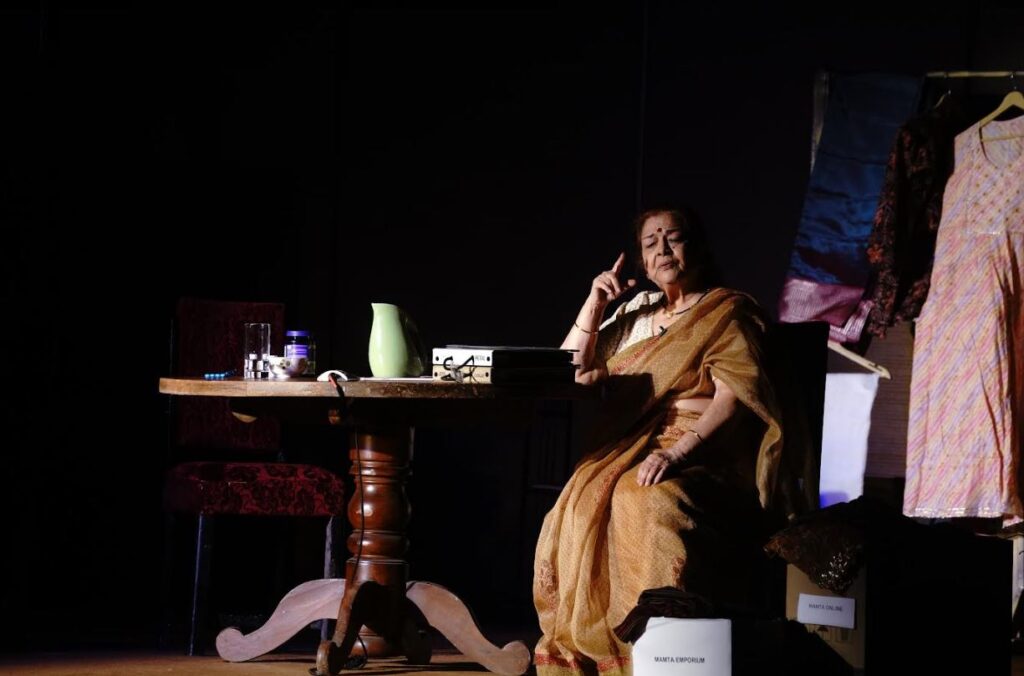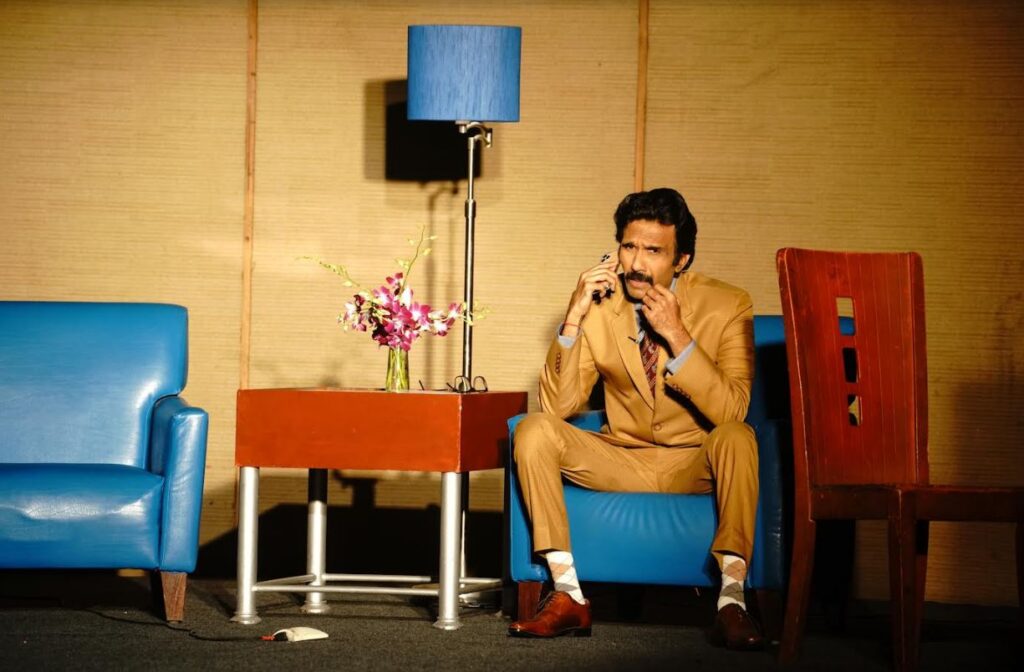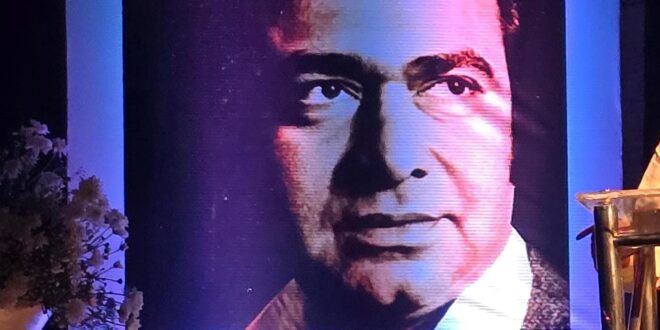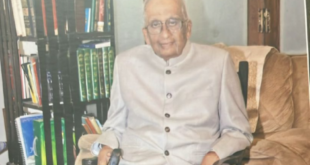The “Sunset Sunrise” is a poignant exploration of the evolving dynamics between parents and their children, framed through the lens of a mother and her NRI son. The play delves into the subtle yet powerful changes that occur when children leave their homeland for foreign shores, seeking higher education and lucrative careers.
While this migration brings prosperity and success, it also takes a toll on relationships, especially the fragile and distant bonds between parents and their children. At the heart of the story is the relationship between a mother and her son, Kunal, who now lives across continents and time zones. His life, like that of many immigrants, revolves around work, career decisions, and in his case, also the pressures of an ongoing corporate merger. His mother, meanwhile, finds herself caught in the whirlwind of these changes, struggling to maintain her grip on the connection they once shared. She adapts to modern technology, learns the new slang, and embraces Western culture in an effort to stay relevant in her son’s life.

However, her efforts seem to fall short as the distance between them grows—not just physically but emotionally. The play carefully unravels the shifting dynamics in their relationship, showing the mother’s journey of nurturing her son from childhood, offering prayers for his future, and sacrificing her own comfort for his success. Yet, as Kunal juggles his own responsibilities—filing taxes, caring for his own children, and maintaining a competitive edge in the business world—the bond between mother and son begins to fray. On her 75th birthday, Kunal commands Siri, the digital assistant on his iPhone, to send his mother a cake and a digital bouquet of roses, a mechanical gesture that replaces the warmth of personal touch. His care for her is reduced to quick phone calls, health insurance renewals, and OTT subscriptions hoping that these would keep her occupied.

Meanwhile, the mother, still living in her old family home, looks at the construction in the neighborhood, embracing noise outside and interprets it as a sign of progress, even as she wonders if material comforts can truly fill the void left by her distant children.
In a powerful turn of events, the son, Kunal, reflects on all that he has missed—his parents’ sacrifices, the moments lost to ambition, and the warmth of a home left behind. As he prepares to call his mother with the news that he won’t be able to return to India for another year due to business commitments, he’s taken aback by her response.
His mother, once clinging to the fading threads of their relationship, reveals that she has founded a startup—Mamata Emporium. This tech-driven platform is her realization of a lifelong dream, reviving her ancestral textile business and providing a space for women to present and sell their merchandise. For her, this marks a new beginning—a sunrise—where the strength and entrepreneurial spirit of women can flourish. The theme of the play, “Sunset Sunrise” shines through in this moment, as the mother’s newfound purpose illuminates her path forward, just as the son grapples with the costs of his success.
The play also sheds light on the father’s journey—the sacrifices he made for his own parents and how he, in turn, gave up his dreams to support his children. This theme of generational sacrifice is juxtaposed with the current trend of success-driven living, where career aspirations often take precedence over familial bonds.
Kunal reflects on what he has lost along the way: missing out on becoming an athlete due to academic pressures, and the joy of watching his children grow up in the presence of his parents. These are moments that slip away, fragments of life lost in the pursuit of success. Through its powerful narrative, The “Sunset Sunrise” questions whether true success can be achieved while living apart from the people who matter most. It explores the shifting values of modern life, where social media presence, fitness routines, and business ambitions take center stage, leaving little room for the warmth of familial love.
The mother’s musings—whether more ghee in her son’s food will make him fat, or the pain in her arthritic hands as she makes his favorite halwa puri—reveal the timeless nature of a mother’s love, one that does not fade with distance or time.As the mother looks back on her own life, she reflects on the changing role of women—from making papads in the summer to managing a family cloth store.
She questions why talented women with a knack for business were never given the opportunities they deserved, underscoring the play’s broader themes of sacrifice and the changing nature of success.
Ultimately, “The Sunset Sunrise” is a tribute to meaningful theatre, shedding light on the emotional and financial burdens that parents bear for their children. It asks the difficult question: is there a way to achieve success while staying together as a family, or must success always come at the cost of fragmented lives spread across continents? The play, penned by Noor Baig and featuring powerful performances by actor-Director Mohammed Ali Baig (who plays Kunal), Rashmi Seth (mother), Vijay Kumar (father), and Sumitra Tiwari leaves the audience with a haunting reflection on the true cost of progress and the enduring love of parents in an ever-changing world.
Premiered on September 29 in Hyderabad to mark the 40th anniversary of theater doyen Qadir Ali Baig, the play saw the participation of the who’s who of the city including the Special Chief Secretary to Government Jayesh Ranjan IAS, Vani Prasad, IAS, Principal Secretary to Government of Telangana, Youth Affairs, Tourism, Culture & Sports Department and Lakshmi Devi Raj among others.
 Gawah (The Witness) – Hyderabad India Fearless By Birth, Pristine by Choice – First National Urdu Weekly From South India – Latest News, Breaking News, Special Stories, Interviews, Islamic, World, India, National News
Gawah (The Witness) – Hyderabad India Fearless By Birth, Pristine by Choice – First National Urdu Weekly From South India – Latest News, Breaking News, Special Stories, Interviews, Islamic, World, India, National News






